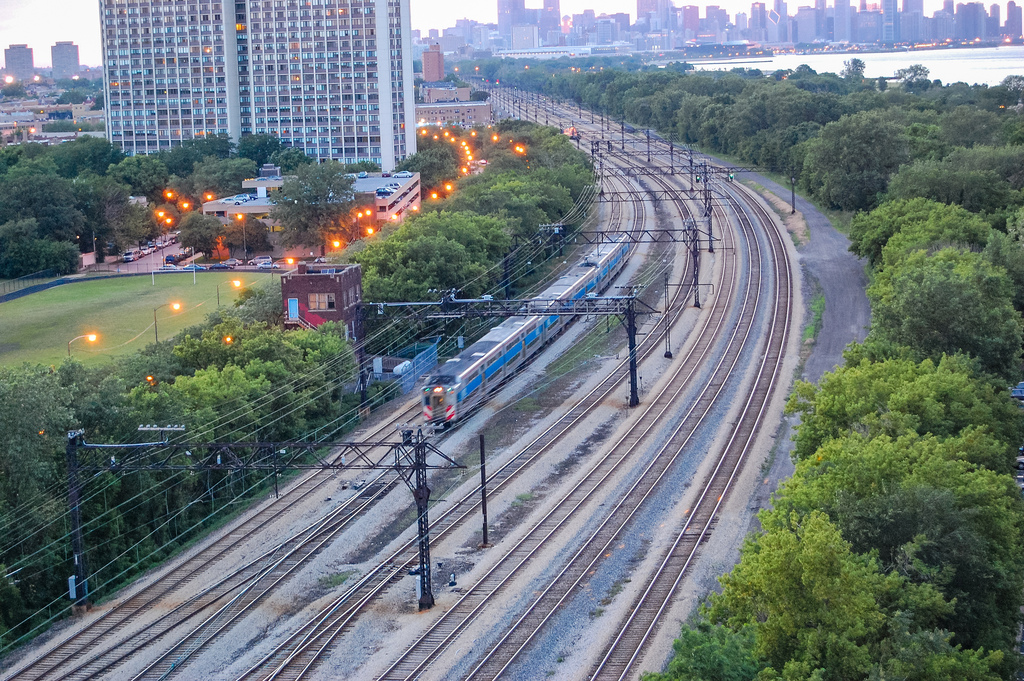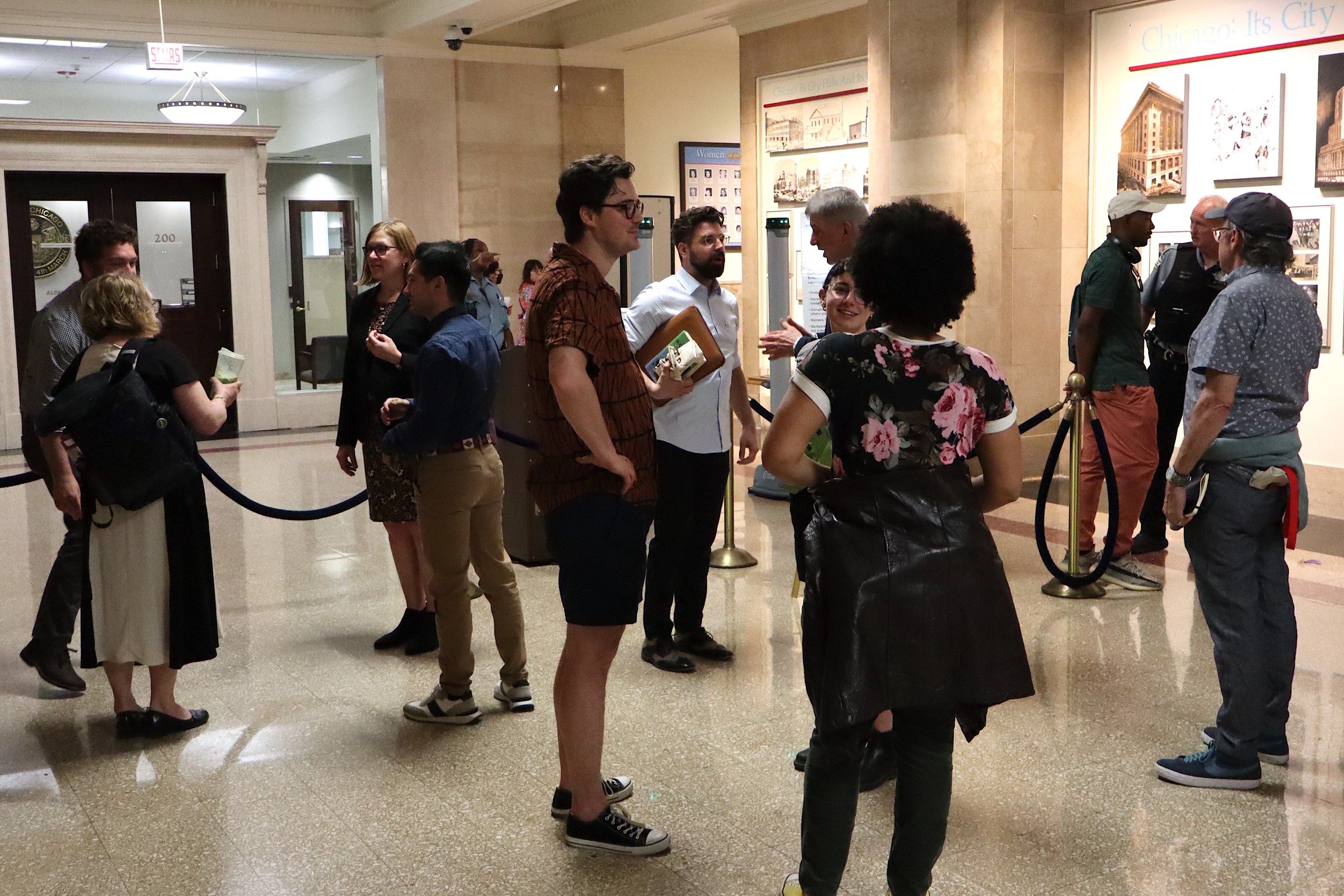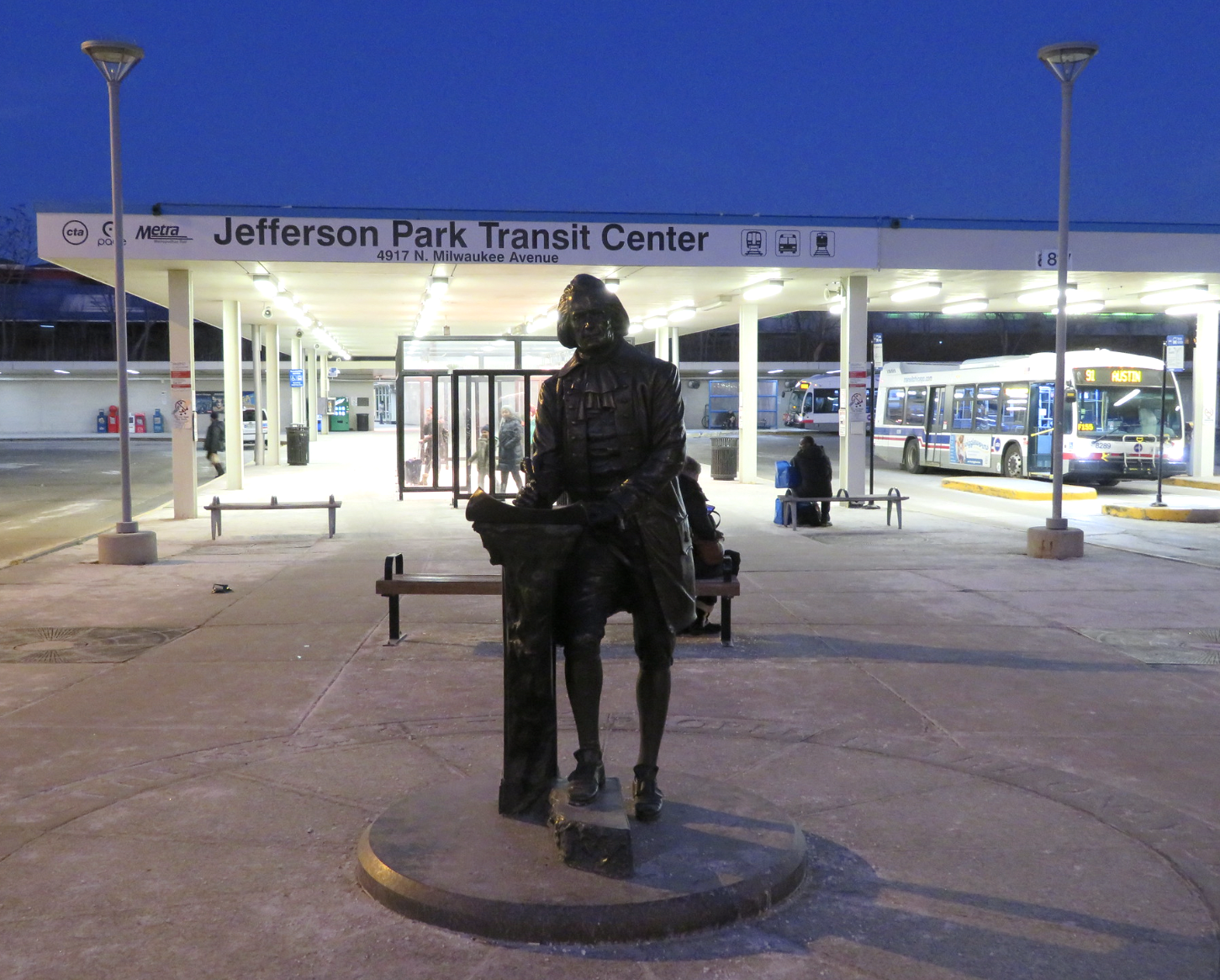I'm a proud and militant South Sider and a product of the Chicago Public Schools. I grew up at the top of Roseland when it was a vibrant retail center and proud middle-class community. The deterioration I have witnessed over the last 40 years just makes me sick. For decades I have lived walking distance from the Metra Electric District line. I used it when I could, but the trains ran too seldom and left me with another fare to pay wherever I got off. Many of my neighbors don’t even know where the Metra Electric goes. I am not against the Red Line Extension. I hope it gets built; we deserve it. But in this challenging time, much of the service it would provide could be put in place at perhaps one tenth of the cost and one sixth of the time by transferring the Metra Electric (ME) to the CTA system.
The Metra Electric was built by the Illinois Central Railroad to provide more frequent commuter service to the growing communities along its passenger line. It was exquisitely designed to provide light, quiet, low impact rapid transit. For many years CTA-level service was provided along its length. South Siders of a certain age will remember there being a transfer station at 63rd and Dorchester where one could easily move from the Green Line to the Illinois Central (now ME). It was understood that the Metra Electric could extend service beyond the limits of the Green Line. When the Red Line began service in the Sixties certain deficiencies in the ME were exposed. There was no economical way to connect to the CTA; you had to pay two fares. This condition continues. The trip on the ME became single purpose for those that work downtown. This represented a last vestige of transit elitism.
After a series of fare increases, ridership has dwindled and Metra has been trying to kill the Blue Island and South Shore branches of the ME for years -- they reduced service to these branches last year while increasing service to Hyde Park. But these branches are exactly where they need to be to provide the best transit service for the neighborhoods they are in. Converting the Metra Electric has been proposed to Metra and the CTA by a consortium of transportation advocacy organizations and community groups called the Coalition for a Modern Metra Electric. With the Obama Presidential Center soon to be built and the Pullman National Monument in development, the Metra Electric is positioned to get more than enough ridership to be a viable rapid transit line.
Again, the Red Line extension is a fine idea, and once a transit-friendly federal government is in Washington again, it could become a reality. Extending the Red Line has the potential to transform the South Side. With clean-sheet planning, neighborhoods can be served whose residents have been sadly isolated from access to Chicago’s many job and educational opportunities. Park & Ride lots are planned for the Red Line stations that will pull commuters off the horribly congested Bishop Ford expressway for a swift trip into the loop.
My issue with the Red Line extension plan is the time it will take to implement it. My community is hurting. When the factories and steel mills closed much of our working middle class employment was cut out from under us. The resources involved in the Modern Metra Electric have been in plain sight for nearly 50 years and successive administrations have been content to let the communities crumble. My neighbors are great people and they need to be able to get to better jobs the same way the other sides of town do. And to allow their growing incomes to nurture local business. Why continue to stymie these communities for 8 - 10 years when the service could be provided in less than two. Holding my community hostage In that differential cannot be justified. We have already wasted eight years just talking about the Red Line Extension. Our communities should not be put on hold while we wait for execution of that project.
The other issue is money. This Federal government is not friendly to urban dwellers. The funding for the Red Line Extension is nebulous, dubious at best. In a tax strapped city and financially broken state, our government needs to make better decisions with our money. Institute the Modern Metra Electric. And if you can get the money use it to improve the radial transit connectivity in Chicago with the resources we have. The current hub and spoke model of the CTA rapid transit reinforces segregated neighborhoods by isolation. As the modern urban environment has matured, cities late to the game have realized that more transit improves the quality of life by un-encumbering movement. Chicago is beset with transit lines that don’t connect and don’t serve the citizens well as it could because it hasn’t evolved. Such as extending the green line to Midway airport. Connecting the Red Line to the Green Line and rapid transit from Midway to O’Hare. We must insist that our elected officials should work to provide for our needs. Yes the Red Line Extension would be better. Build it if you can. But convert the Metra Electric Now.




